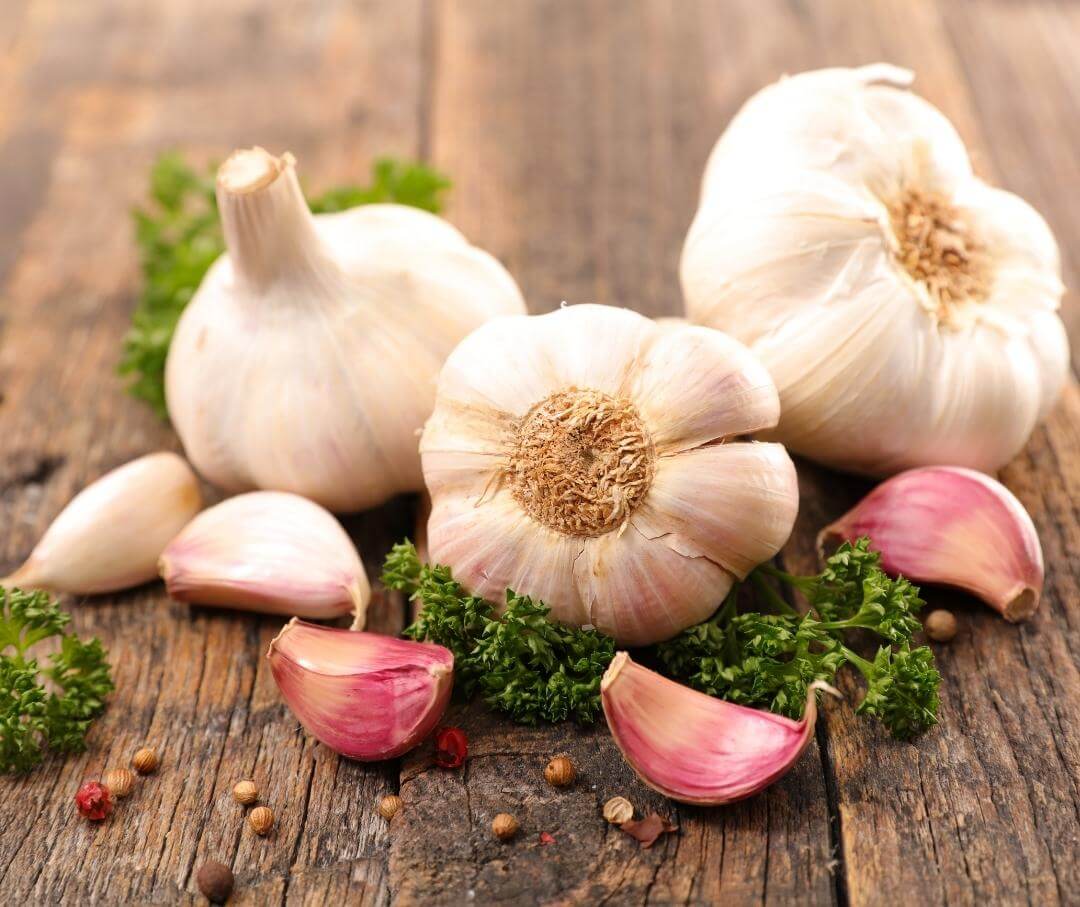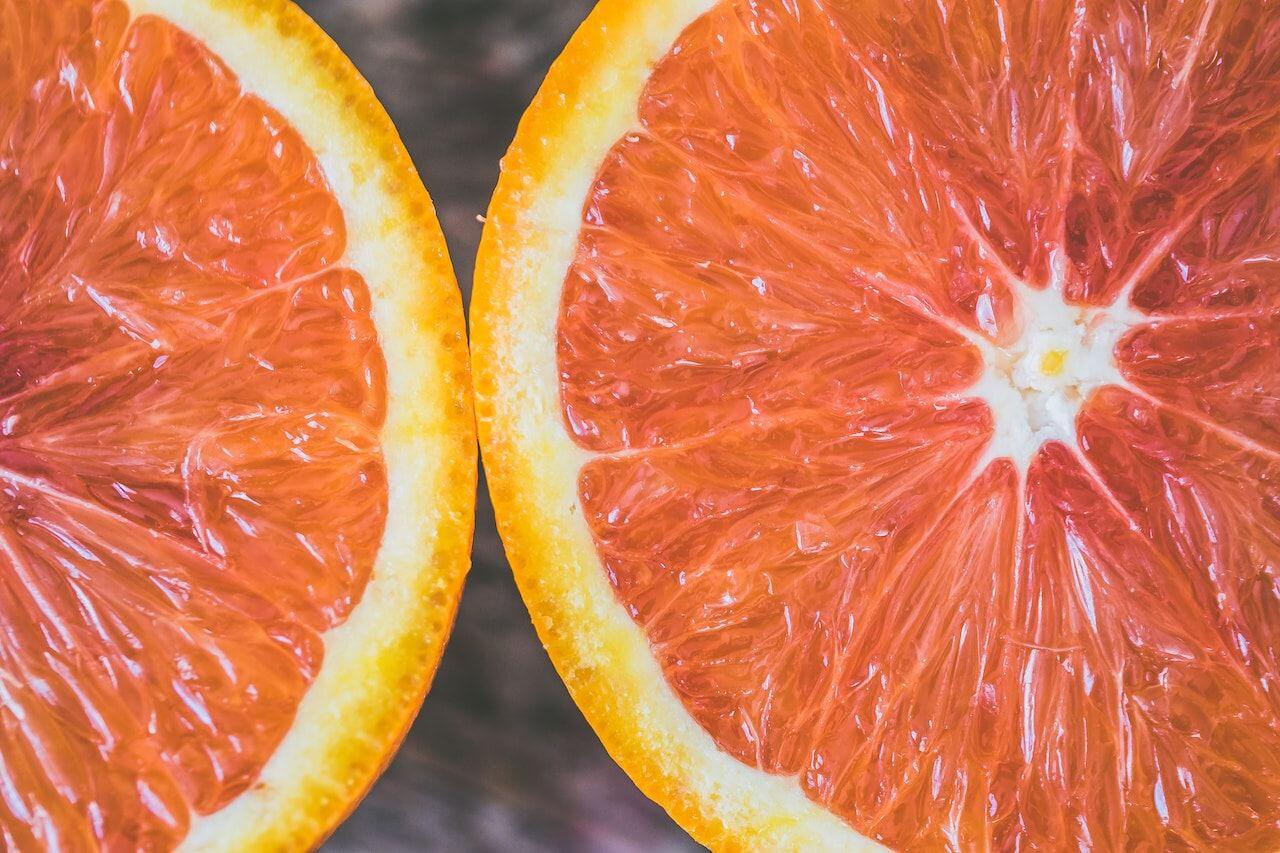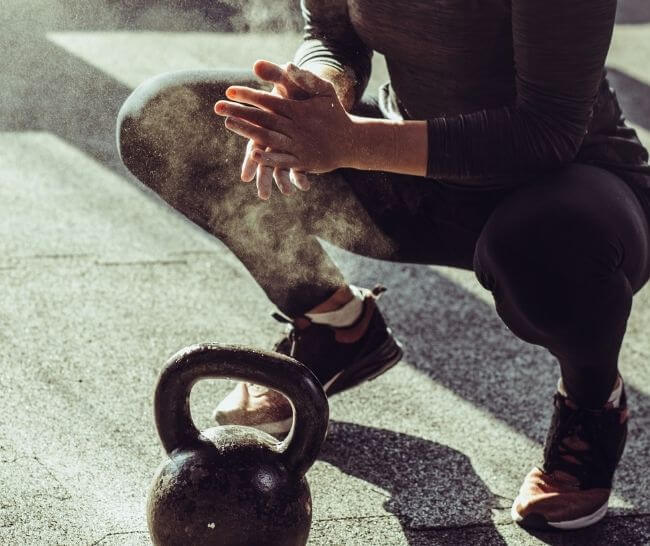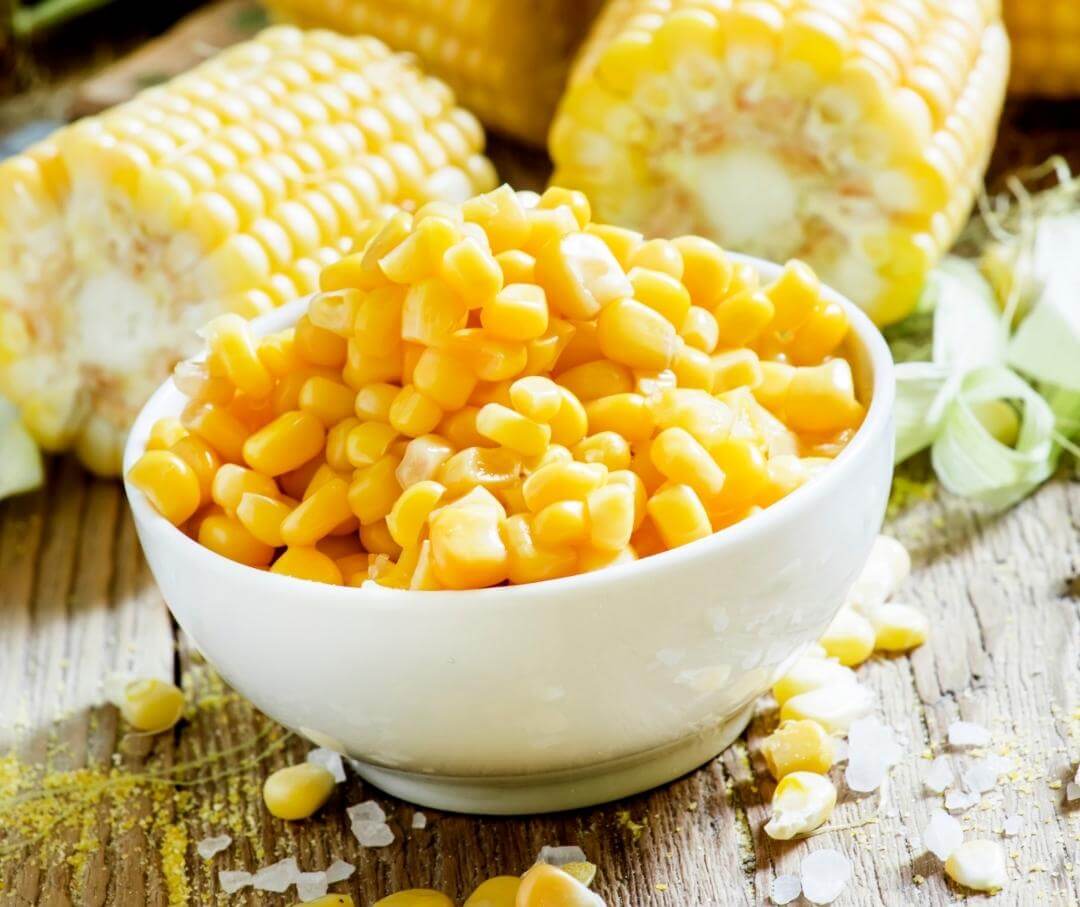While it’s most known for its contributions to bone strength, calcium actually plays a role in many aspects of health. It’s the most abundant mineral in the body, and it’s involved in muscle contraction, blood clotting, nerve signaling, and regulating blood pressure.1 The body cannot produce calcium on its own; it must be obtained through the diet. The average healthy adult needs 1,000 milligrams (mg) of calcium daily, which is easily achievable considering dairy products like cow’s milk, cheese, and yogurt can contain around 20-30% of your day’s needs in one single serving.
However, those who follow a vegan diet must rely on alternative sources of calcium to meet their daily needs. Unfortunately, research shows that vegans tend to consume less calcium than their omnivore counterparts. Enter vegan calcium sources. There are many plant-based sources of calcium that fit into a well-balanced vegan diet, and this article will cover them in detail.
{{mid-cta}}
How Much Calcium Do You Need in a Day?
Calcium needs vary depending on your age and sex. For example, children ages 1 to 3 need 700 mg of calcium daily, while children ages 4 to 8 need 1,000 mg daily. Then, calcium requirements jump to 1,300 mg daily for kids and teenagers between 9 and 18 and drop down to 1,000 mg daily for adults under 50. Recommended calcium intake increases to 1,200 mg daily for women over 50 due to naturally occurring hormonal changes that affect bone mineralization.1
Unfortunately, many people fall short of the recommended values, putting them at risk for low bone density, poor muscle function, and extreme fatigue. Those who follow a vegan lifestyle may be at an increased risk of calcium deficiency if they are not mindful of getting enough through plant-based foods.
And while vegan sources of calcium can be highly beneficial, not all offer a high bioavailability. Some plant-based sources of calcium are not as readily absorbed as those from animal sources, such as cow’s milk. Therefore, to consume enough calcium on a vegan diet, it’s essential to include a wide variety of sources.
What Are the Benefits of Calcium?

Calcium gets a lot of hype for its role in maintaining strong bones and teeth—our bones are partly made of calcium salts, like calcium phosphate. Falling short of our calcium needs puts us at risk of developing weak bones or osteoporosis.
However, the mineral’s responsibilities extend far beyond maintaining healthy bones. Calcium is essential to many bodily processes, such as nerve transmission, blood pressure regulation, and muscle contraction.
Calcium is an essential component of the signaling pathways necessary for muscle contraction.2 It’s a vital part of vascular smooth muscle contraction, which affects blood pressure. Research has shown that increased calcium intake can lower blood pressure, thereby possibly reducing the risk of developing hypertension.3
Still, calcium cannot do the job on its own. Vitamin D is essential for the gastrointestinal absorption of calcium and the maintenance of serum-ionized calcium levels.14 Therefore, it’s important to be mindful of your vitamin D levels to maximize calcium’s benefits. Sun exposure helps facilitate vitamin D synthesis, or you can get the vitamin from dietary sources like fatty fish, beef liver, egg yolks, and mushrooms.15
<p class="pro-tip"><strong>Learn More: </strong><a href="vegan-diet-for-diabetes">Vegan Diet for Diabetes: Tips for Success</a>.</p>
8 Calcium Sources for Vegans
Since our bodies can’t produce calcium on their own, we must meet our needs through dietary intake. Dairy products typically have the highest amounts of calcium, but they are obviously not an option for those who follow a vegan diet. Those following an entirely plant-based diet must be diligent about getting enough calcium, as vegan food sources don’t usually contain the same amount of calcium as dairy products.
Still, there are many vegan-friendly sources of calcium, including:
- Soy Foods: Soybeans are naturally rich in calcium, making them a staple for vegans and vegetarians trying to increase their calcium intake. According to the USDA, 1 cup of cooked soybeans provides 175 mg of calcium, 18% of the Daily Value.4 Edamame, made from immature soybeans, is also a good source of calcium. One cup provides 98 mg of calcium.5 Soy-based foods and drinks, such as tofu, tempeh, and soy milk, are also good sources of vegan-friendly calcium.
- Leafy Greens: Dark green leafy vegetables, such as spinach, turnip greens, kale, and collard greens, are considered calcium-rich foods. One cup of cooked collard greens provides 327 mg of calcium.6 Mustard greens, bok choy, and Swiss chard are also praised for their high calcium content.
- Other Vegetables: Other veggies, like Brussels sprouts, okra, sweet potatoes, and rhubarb, are good sources of calcium. Adding them to your meal is an efficient and flavorful way to boost your calcium intake. For example, 1/2 cup of sliced cooked okra provides 62 mg of calcium, and one medium sweet potato provides 43 mg of calcium.7, 8
- Certain Seeds and Nuts: Many seeds and nuts contain calcium, healthy fats, and other essential nutrients. But certain varieties, such as almonds, Brazil nuts, chia seeds, and sesame seeds, tend to be very rich in calcium. For example, a 1/4-cup serving of almonds provides 96 mg of calcium, almost 10% of the Daily Value.9 One ounce of chia seeds provides 179 mg of calcium, almost 20% of the Daily Value.10
- Seaweed: Surprisingly, seaweed is a calcium-rich food. One cup of raw kelp provides 134 mg of calcium.11 However, some seaweed varieties are high in iodine, which may affect thyroid health. Therefore, it’s not recommended to eat them in large quantities.
- Fortified Foods and Drinks: Some processed foods and drinks have calcium added during manufacturing, helping you boost your daily calcium intake. Commonly fortified foods include certain cereals, plant-based yogurts, and some flours. Commonly fortified drinks include some plant milks and orange juice.
- Beans and Lentils: Beans and lentils offer many health benefits. They’re nutrient-dense, packed with protein and fiber, and contain an impressive amount of calcium. Cooked navy beans, chickpeas, and white beans all contain close to 10% of the Daily Value of calcium per cup. Plus, they are rich in other nutrients like potassium, magnesium, and zinc.
- Some Fruits: Some fruits, such as figs, oranges, kiwis, apricots, and papaya, are rich in calcium. For example, two dried figs provide 27 mg of calcium.17 Many vegan recipes use figs as a natural sweetener, meaning they can serve many purposes, including increasing your calcium intake. Oranges are also rich in calcium, providing around 60 mg of calcium per medium fruit.18
Calcium for Vegans and Fortified Foods

Calcium-fortified foods and drinks can benefit those following a vegan diet. A plant-based lifestyle doesn’t allow dairy products, so fortified items can help you meet the recommended intake while staying true to your choices.
Plant-based foods and drinks that are commonly fortified with calcium include
- Plant-Based Milk Alternatives: Many soy, oat, rice, and almond milk varieties are fortified with calcium to make them comparable to dairy milk. For example, 1 cup of oat milk can provide 350 mg of calcium12
- Orange Juice: Some brands of orange juice add calcium during production. Check the label to make sure the calcium content meets your needs
- Cereals: Some breakfast cereals may contain added calcium
- Tofu: Some tofu brands add calcium during production, specifically during the coagulation process
- Breads and Tortillas: Many flours used to make bread and tortilla products are enriched with calcium. For example, one 8-inch flour tortilla provides around 97 mg of calcium16
- Plant-Based Yogurts: Like plant-based milks, many non-dairy yogurts contain added calcium
Not all plant-based foods and drinks have calcium added during production. It’s important always to read nutrition labels to confirm the calcium content and choose the option that best fits your nutrition needs.
Vegan Calcium Supplements: Are They Worth It?
While nutrients are typically best absorbed from whole foods, meeting 100% of your needs through diet alone is not always realistic, especially when you don’t eat animal products. Research shows that vegans typically have a lower calcium intake than omnivores and vegetarians, highlighting a need for supplementation.13 Vegans who fall short of their calcium needs may need to rely on supplements to bridge the gap.
A blood test is the only way to truly know if your calcium levels are trending low. However, signs of calcium deficiency include poor blood circulation, brittle nails, hair breakage, and muscle cramping. Calcium supplements can be a convenient and helpful option for vegans who struggle to meet their calcium needs through whole foods alone.
Calcium supplements may also present some unwanted side effects. At normal doses, calcium supplements may cause gastrointestinal discomfort in the form of bloating, gas, and constipation. Extremely high doses may contribute to kidney stones or cause nausea, dry mouth, confusion, and irregular heartbeat. Talk with your doctor before starting an over-the-counter supplement to ensure it does not interfere with any current medications or care plans.
It’s also important to note that vitamin D plays a role in calcium levels, as vitamin D is essential for proper calcium absorption. Taking a calcium supplement may not be effective if your vitamin D levels aren’t within normal limits. A registered dietitian nutritionist can help you navigate your nutrient needs and determine the best way to maximize your supplementation.
Learn More About How to Improve Blood Sugar Health With Signos’ Expert Advice
Calcium plays a major role in our overall health. It’s widely used in the body, as it’s involved in bone health, muscle contraction, nerve signaling, blood clotting, and heart health. While our body depends greatly on calcium, it cannot make it on its own. We must meet our needs completely through diet. For those who don’t eat animal products, vegan calcium sources are the way to go.
Managing health requires a holistic approach that includes eating a well-balanced diet, regular physical activity, and choosing the proper medication with the help of trusted healthcare professionals. Signos’ experts are equipped to help you navigate the many avenues of wellness, such as blood sugar control and weight management, and everything that goes into improving your health.
Learn more about glucose levels on Signos’ blog, and find out if Signos is a good fit for you by taking a quick quiz!
<p class="pro-tip"><strong>Also Read: </strong><a href="low-glycemic-vegan-diet">How to Eat a Low-Glycemic Vegan Diet</a>.</p>
- Item 1
- Item 2
- item 3
Topics discussed in this article:
References
- Shkembi B, Huppertz T. Calcium Absorption from Food Products: Food Matrix Effects. Nutrients. 2021;14(1):180. Published 2021 Dec 30. doi:10.3390/nu14010180
- Kuo IY, Ehrlich BE. Signaling in muscle contraction. Cold Spring Harb Perspect Biol. 2015;7(2):a006023. Published 2015 Feb 2. doi:10.1101/cshperspect.a006023
- Cormick G, Ciapponi A, Cafferata ML, Cormick MS, Belizán JM. Calcium supplementation for prevention of primary hypertension. Cochrane Database Syst Rev. 2022;1(1):CD010037. Published 2022 Jan 11. doi:10.1002/14651858.CD010037.pub4
- FoodData Central. Cooked Soybeans.
- FoodData Central. Edamame.
- FoodData Central. Cooked Collard Greens.
- FoodData Central. Okra.
- FoodData Central. Sweet Potato.
- FoodData Central. Almonds.
- FoodData Central. Chia Seeds.
- FoodData Central. Seaweed.
- FoodData Central. Oat Milk.
- Bickelmann FV, Leitzmann MF, Keller M, Baurecht H, Jochem C. Calcium intake in vegan and vegetarian diets: A systematic review and Meta-analysis. Crit Rev Food Sci Nutr. 2023;63(31):10659-10677. doi:10.1080/10408398.2022.2084027
- Wimalawansa SJ, Razzaque MS, Al-Daghri NM. Calcium and vitamin D in human health: Hype or real?. J Steroid Biochem Mol Biol. 2018;180:4-14. doi:10.1016/j.jsbmb.2017.12.009
- National Institutes of Health. Vitamin D.
- FoodData Central. Flour Tortilla.
- FoodData Central. Dried Figs.
- FoodData Central. Orange.
































